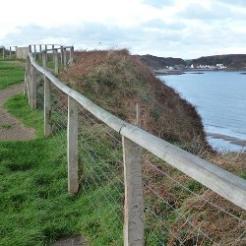‘Social polluters’ such as alcohol, gambling and payday loan companies could be taxed to provide interest-free loans to innovators with early-intervention solutions to social problems, the Early Action Task Force has recommended.
In its latest report Towards effective prevention: Practical steps for the next government, the Task Force advocates ten-year budgets, a new 'future generations' statutory duty, and a new Office for Future Generations.
The paper is aimed at politicians drawing up election manifestoes and sets out a number of recommendations for ways of building a better society by intervening earlier at all points in people’s lives, not just in early childhood, to prevent expensive problems from arising later.
Examples include action to avoid diabetes, prevent reoffending or avoidable frailty or dependency in old age.
It uses the analogy of “building a fence at the top of a cliff rather than running an ambulance underneath” to illustrate the concept.
The report suggests ways of tackling the barriers to early action, which include short-termism, poor information, underinvestment, and institutional silos.
The Task Force, which is chaired by David Robinson, co-founder of Community Links, states: “We advocate new ten-year planning, with ten-year investment plans in social infrastructure, mirroring existing ten-year planning for major capital infrastructure projects.
“The first five years of spending plans would be firm, matching a fixed-term government, to aid stability. But ten-year plans would be reviewed and rolled forward every three years to reflect changing economic circumstances.
“Public bodies should also apply a new ten-year test for new projects to assess costs and benefits, including on other agencies.”
The Task Force states that early action could be a vital element of a “two-term” strategy for an incoming government and is also a “natural agenda” for a coalition government.
But it acknowledges that politicians often say they are unable to carry out their good intentions with regard to early interventions because the electorate, or the media, will not allow them to. They cite public opposition to green taxes or the closure of local hospitals. This results in the political agenda being geared to short-term policy delivery and hampers genuine focus on the future.
Currently the government spends just 6 per cent of its budget on early action goals, with no plans for a significant increase.
“A shift in the dialogue with the electorate is needed…connecting with the issues and concerns that people face now and demonstrating how action across a number of years would yield benefits not just in the next few years but also shape their future positively,” the Task Force said.
It recommended the implementation of a statutory duty toward future generations and an Office for Future Generations – both provisions already being established in Wales.
Treasury and Cabinet Office should map the potential for different government agencies for co-operate to invest in early interventions and “knock heads together where necessary”. Responsibility charging should be brought in to levy a fee where one public body passes costs on to another because of inaction or systems failure.
Before each election, the Office for Budget Responsibility and the Treasury should provide public analysis of key drivers of costs and potential for early action investment, and the relative proportion of early action spending must be increased over time through the use of early action transition plans. More ‘What works’ centres should also be set up.
The early action loan fund would make interest-free loans to public sector agencies to invest in early action, such as to reduce welfare costs or prevent social care. The Task Force suggests that the loans would be paid back over three to seven years through savings in acute provision or welfare spending, and could at first be limited to say £200m-£250m to “create the impression of scarcity and prompt the more forward-thinking to act”.
“We would envisage ten to 20 programme of £10m-£20m – with spend spread over a number of years...the fund could be financed by top-slicing existing budgets and/or a tax on social polluters such as the gambling, alcohol and payday loan industries.”
The Task Force concludes that the next government must build a system that supports longer-term planning and genuinely incentivises and promotes radical change.
Read the full report Towards effective prevention here.









